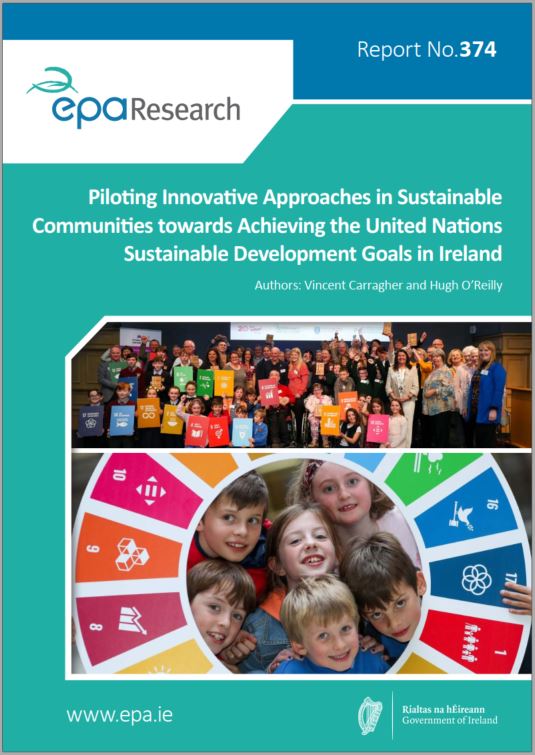
Authors: Vincent Carragher and Hugh O’Reilly, May 2021
Year: 2021
This study set out to catalyse the sustainability transition of communities using the United Nations Sustainable Development Goals (SDGs) as a framework. The research had a branded, public-facing campaign, Spark Change (www.sparkchange.ie), which recruited communities to an SDG challenge, effectively asking and supporting them to progress their sustainability transition and related SDG actions.
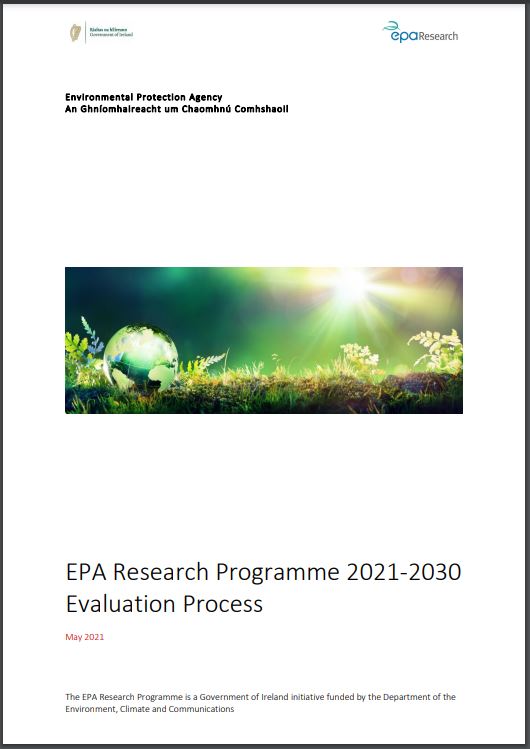
Year: 2021
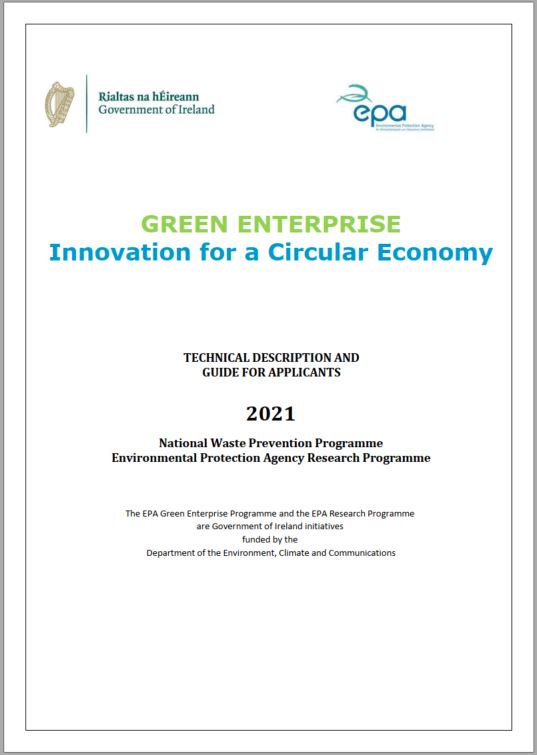
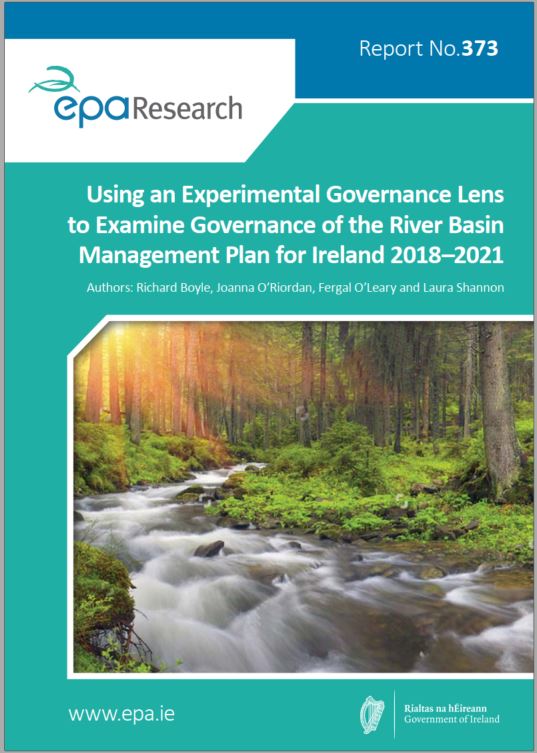
Authors: Richard Boyle, Joanna O’Riordan, Fergal O’Leary and Laura Shannon, May 2021
Year: 2021
This report examines lessons learned from the water governance arrangements put in place for the River Basin Management Plan (RBMP) 2018–2021 for Ireland through the lens of experimental governance. The study finds that the three-tier governance structure is appropriate and should be continued. However, there is still room for improvement in the area of adapting and improving the operation of the existing arrangements.
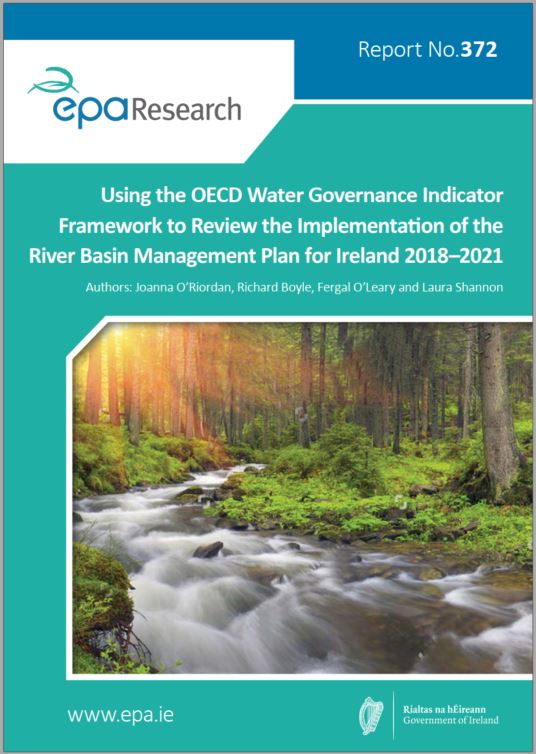
Authors: Joanna O’Riordan, Richard Boyle, Fergal O’Leary and Laura Shannon, May 2021
Year: 2021
This report assesses water governance in Ireland using the Water Governance Indicator Framework, a tool developed by the Organisation for Economic Cooperation and Development (OECD) in 2018 to assist countries in assessing their progress towards the European Union’s Water Framework Directive.
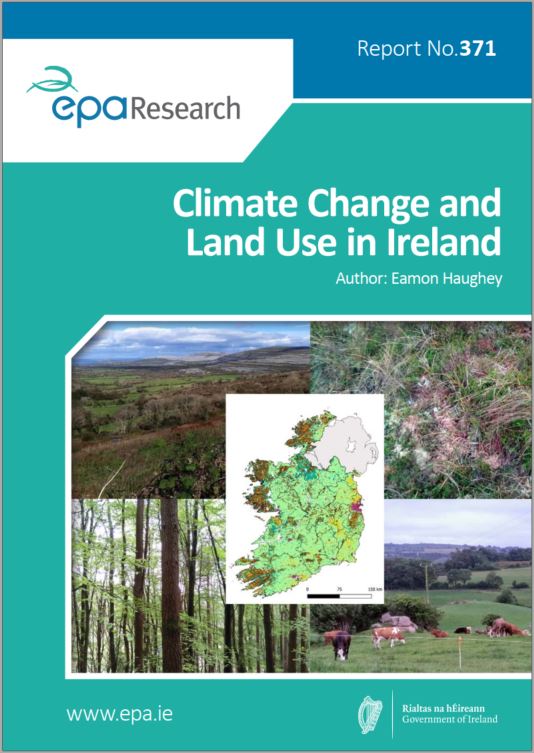
Author: Eamon Haughey, May 2021
Year: 2021
Land supports a range of ecosystem services including biodiversity and economic outputs in the agriculture and forestry sectors. This report identified pressures in the land system by analysing land use and outputs and greenhouse gas emissions associated with the land system. It identifies knowledge gaps in relation to national land use mapping, which currently limit the potential for regional analyses of land–climate interactions.
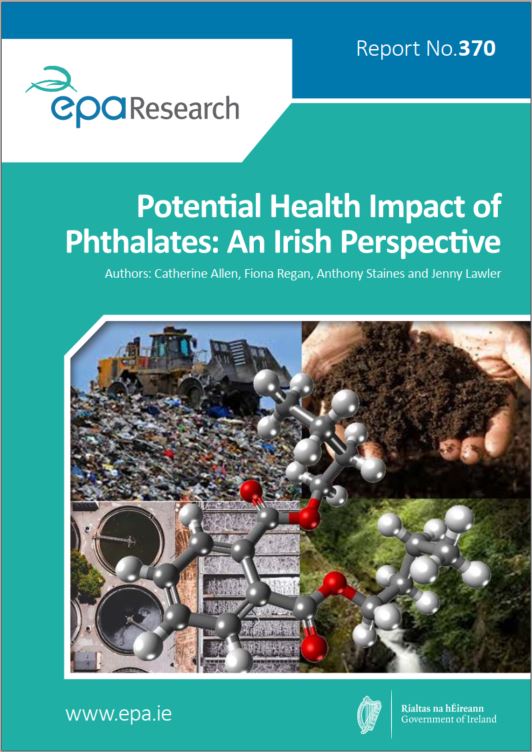
Authors: Catherine Allen, Fiona Regan, Anthony Staines and Jenny Lawler, April 2021
Year: 2021
Phthalates are plasticisers that are ubiquitous in the environment, have the potential to disrupt the endocrine system and are associated with a wide range of adverse health effects. This report identifies that all 11 phthalates studied are currently present in the Irish environment. The levels of human exposure indicate that there is no immediate risk to human health on a population-averaged basis.
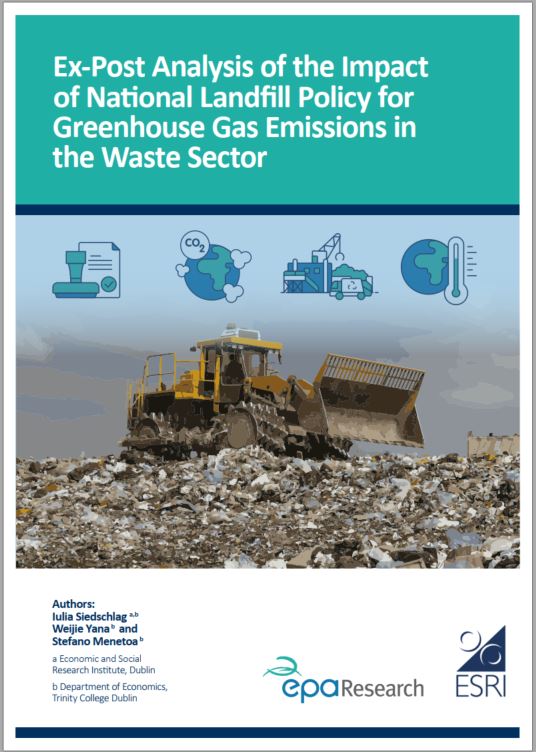
Authors: Iulia Siedschlag, Weijie Yan and Stefano Meneto, March 2021
Year: 2021
This research examines the impact of Ireland’s landfill policy on greenhouse gas emissions from the waste sector over the past three decades. The analysis focuses on direct methane emissions emanating from the municipal solid waste disposed to landfill sites in Ireland over the period 1990-2018.
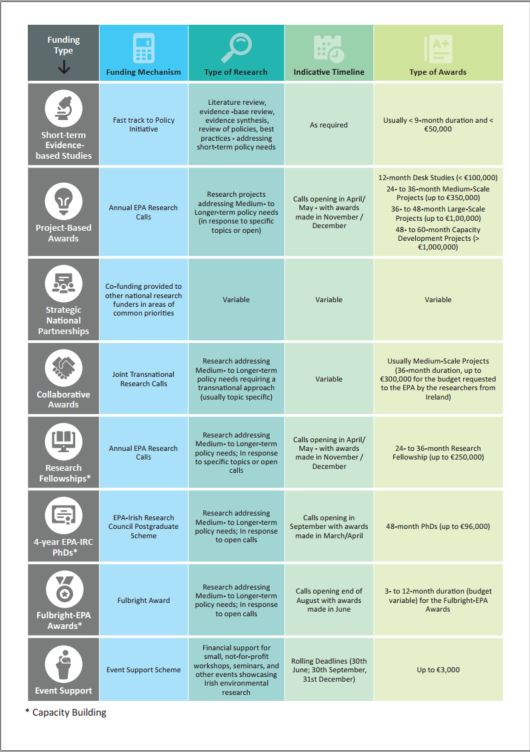
Authors: EPA, March 2021
Year: 2021
This guide provides an overview of the EPA Research funding schemes open in 2021.
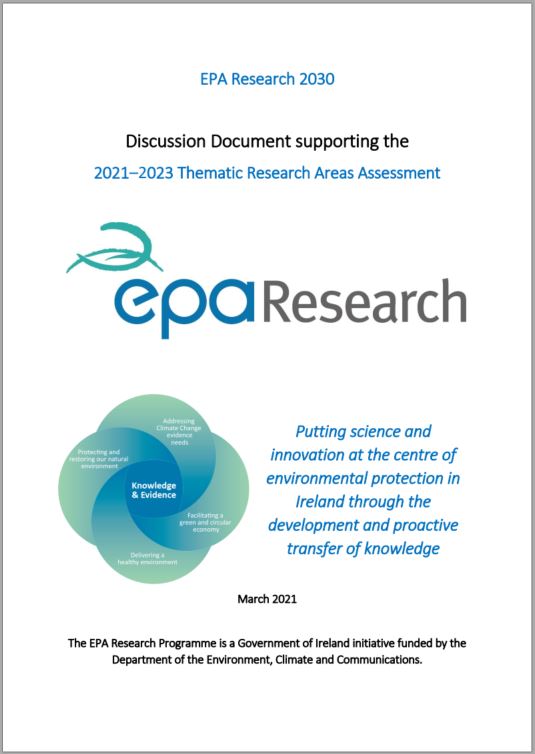
Authors: EPA, March 2021
Year: 2021
This document is the Discussion Document supporting the EPA Research 2030: 2021–2023 Thematic Research Areas Assessment.
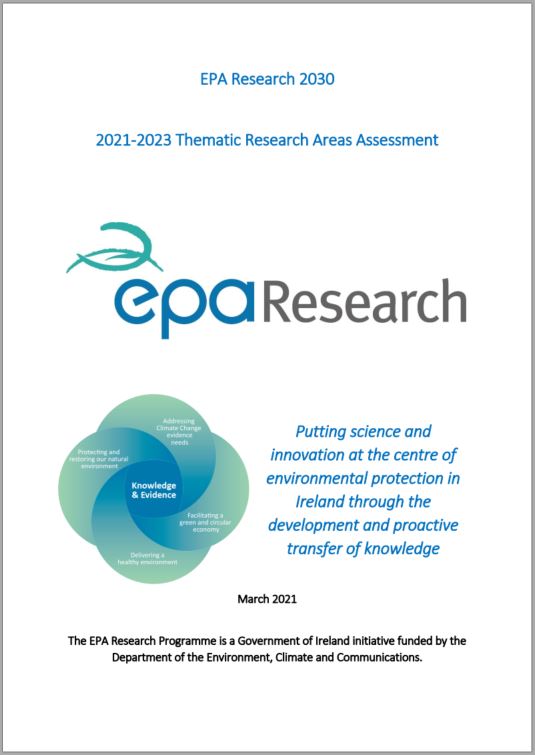
Authors: EPA, March 2021
Year: 2021
This thematic assessment provides an overview of the research areas linked to addressing knowledge and evidence gaps to support medium and long-term environmental policy actions and objectives, identified for the period 2021-2023.
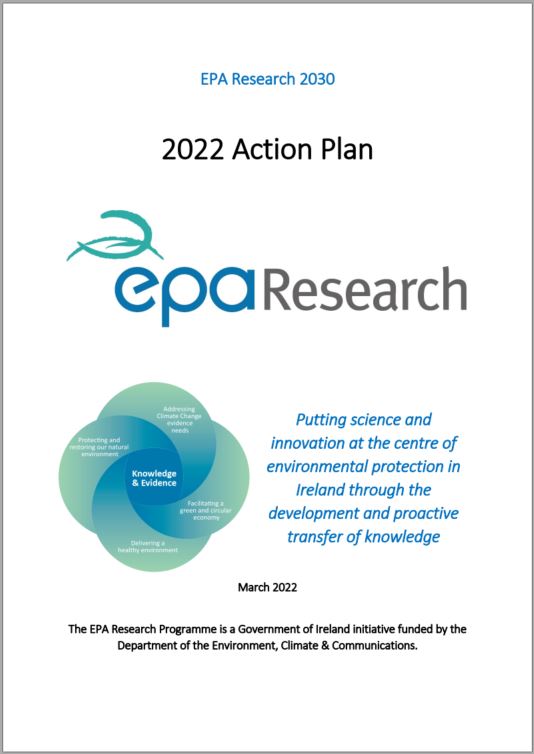
Authors: EPA, March 2021
Year: 2021
This Action Plan 2022 provides a guide for the planned activities of the EPA Research Programme in 2022.
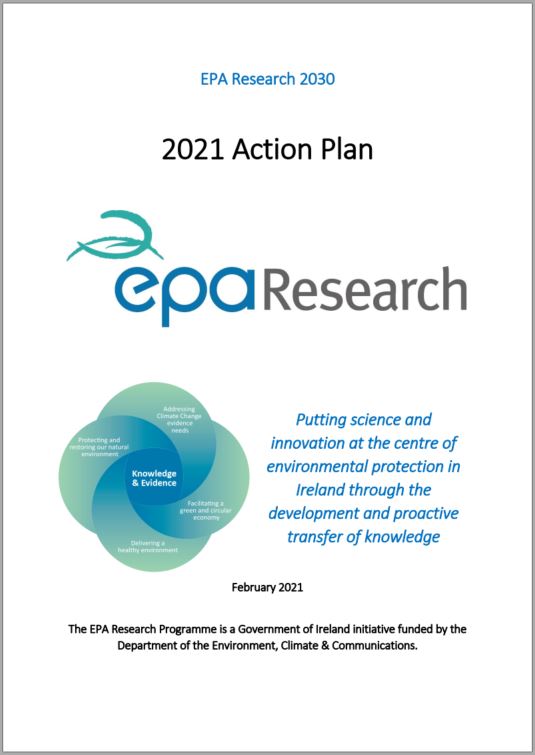
Authors: EPA, March 2021
Year: 2021
This Action Plan 2021 provides a guide for the planned activities of the EPA Research Programme in 2021.
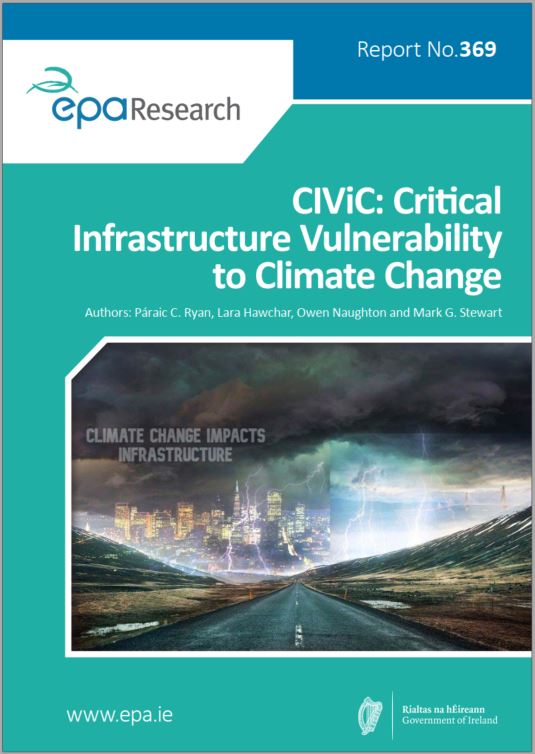
Authors: Páraic C. Ryan, Lara Hawchar, Owen Naughton and Mark G. Stewart, March 2021
Year: 2021
Modern society relies on the effective functioning of critical infrastructure networks to provide public services, enhance quality of life and spur sustainable economic development. Part A of this report presents a framework and analysis aimed at identifying potential risks for the four main critical infrastructure sectors. Part B of the report was applied to part of the energy sector as an illustrative case study.
Year: 2021
This template should be used for the preparation of final reports for EPA Research projects.
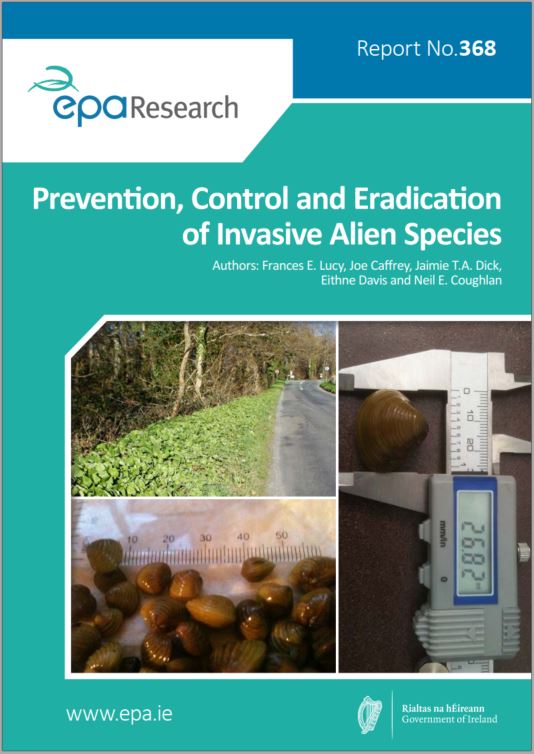
Authors: Frances E. Lucy, Joe Caffrey, Jaimie T.A. Dick, Eithne Davis and Neil E. Coughlan, February 2021
Year: 2021
Invasive alien species (IAS) are animals and plants that become introduced, either accidentally or intentionally to a region where they are not present and have serious negative impacts where they establish. This research informs policy on the prevention, early detection and rapid eradication of IAS, and their management in accordance with the internationally agreed hierarchical approach to combatting IAS.
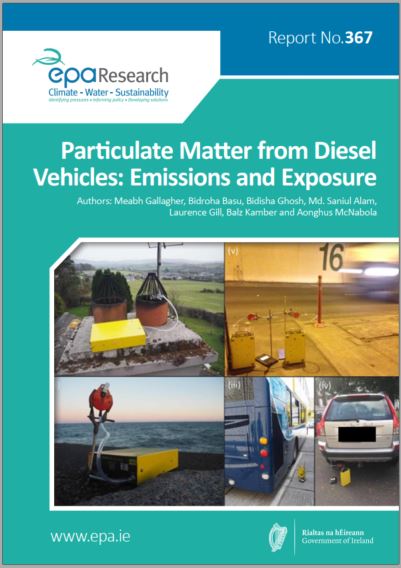
Authors: Meabh Gallagher, Bidroha Basu, Bidisha Ghosh, Md. Saniul Alam, Laurence Gill, BalzKamber and Aonghus McNabola, February 2021
Year: 2021
Research was conducted to assess the contribution of diesel vehicle emissions to the concentrations of PM2.5 in Dublin. The major source identified was solid fuel burning, contributing 46-50% of the total mass recorded. The 2nd largest contributor at a roadside site was diesel vehicle emissions (22%) followed closely by road dust (19%). The 2nd largest source at a suburban site was soil (20%) followed closely by sea spray (14%).
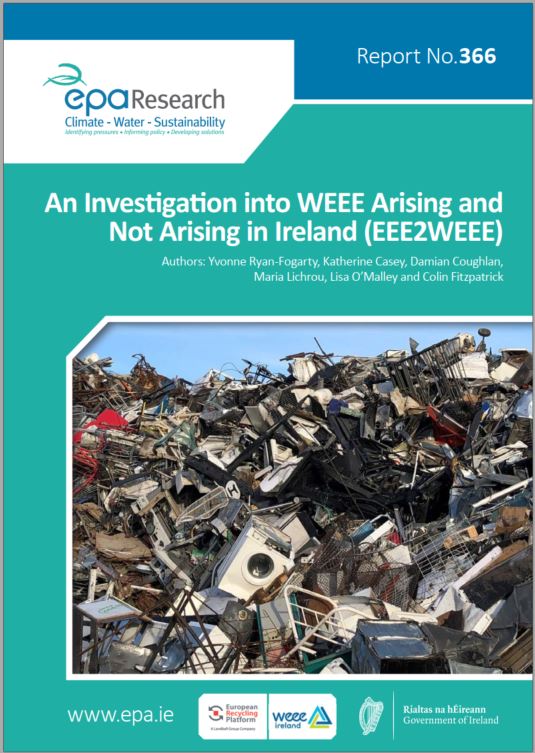
Authors: Yvonne Ryan-Fogarty, Katherine Casey, Damian Coughlan, Maria Lichrou, Lisa O’Malley and Colin Fitzpatrick, February 2021
Year: 2021
Waste electrical and electronic equipment (WEEE) is the fastest growing waste stream in Europe. This research provides insight into consumer and business behaviours towards WEEE, particularly regarding how key decisions are made around WEEE disposal. This research determined a hybrid approach to WEEE target setting should be explored, using data available to Ireland and using aspects of the WEEE Calculation Tool.